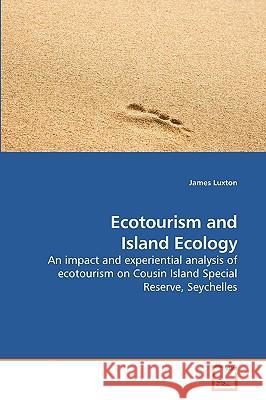Ecotourism and Island Ecology » książka
Ecotourism and Island Ecology
ISBN-13: 9783639227451 / Angielski / Miękka / 2010 / 100 str.
Against a backdrop of governmental underinvestment and significant budget shortfalls there is an urgent need for protected areas to find alternative funding resources to pay for conservation work. Cousin Island Special Reserve chose eco or nature-based tourism. Managing nature-based tourism in protected areas is a challenge faced by many conservation organisations and all forms of tourism have environmental impacts. Consequently developing tourism operations within protected areas risks compromising the conservation goal of biodiversity preservation. To balance conservation needs, with revenue generation and the maintenance of a quality visitor experience in a sustainable manner requires a cross disciplinary approach and outlook. Therefore, this study approached these conflicting goals using both ecological and social analysis for the nature-based tourism on Cousin Island special Reserve.
Against a backdrop of governmental underinvestment and significant budget shortfalls there is an urgent need for protected areas to find alternative funding resources to pay for conservation work. Cousin Island Special Reserve chose eco or nature-based tourism. Managing nature-based tourism in protected areas is a challenge faced by many conservation organisations and all forms of tourism have environmental impacts. Consequently developing tourism operations within protected areas risks compromising the conservation goal of biodiversity preservation. To balance conservation needs, with revenue generation and the maintenance of a quality visitor experience in a sustainable manner requires a cross disciplinary approach and outlook. Therefore, this study approached these conflicting goals using both ecological and social analysis for the nature-based tourism on Cousin Island special Reserve.











